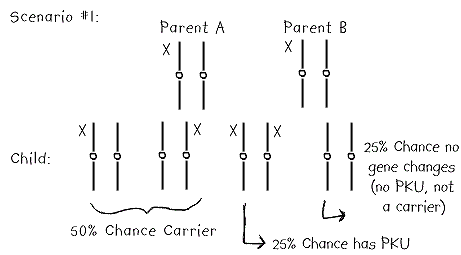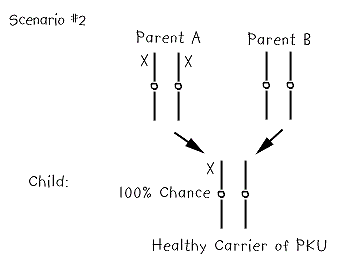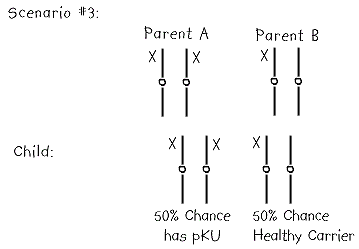 |
Since PKU is a recessive disorder, then the two parents must at least be healthy carriers, (which means that they have no symptoms of the disease, but can pass it along to their children) in order to conceive a child with PKU. If two carriers produce a child, it has a 25% chance of having PKU, a 50% chance of being a carrier, and a 25% chance of not having PKU, nor being a carrier (Scenario #1).
In a case where one parent has PKU and the other is not a carrier, all the children will be carriers (Scenario #2).
A child who has one parent with PKU, and another who is a carrier, has a 50% chance of being a carrier and a 50% chance of having PKU (Scenario #3).
Two parents who are not carriers, cannot produce a child with PKU, nor can the child be a carrier. If both parents have PKU, then there is an 100% chance that their child will have the disorder. 


All Diagrams originate from the University of Minnesota's PKU Program's Web-Site. Click here to enter the University of Minnesota PKU website. |  |
